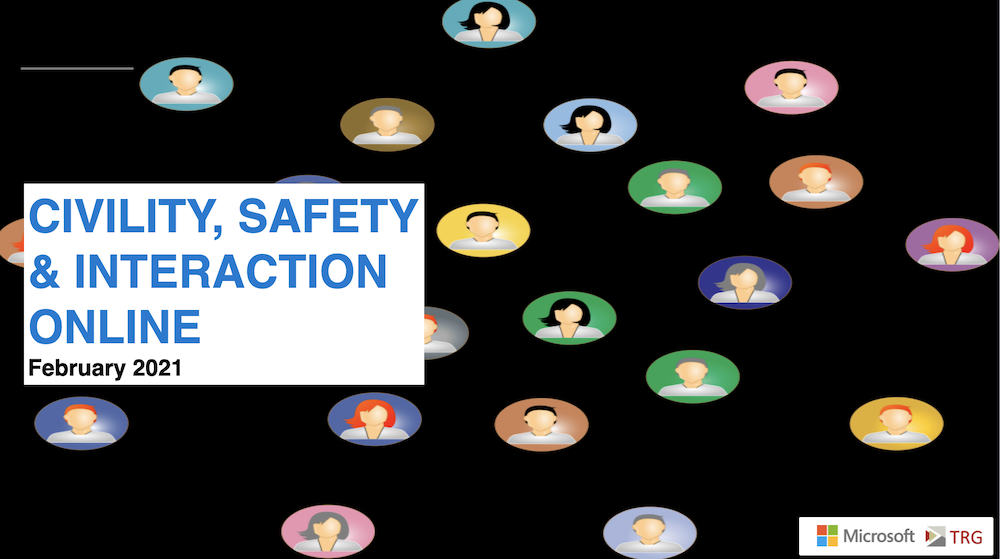Digital civility – what a term! What exactly does it mean?
With such prevalent access to the World Wide Web in this day and age, it’s inevitable that everyone – and anyone! – will have a digital footprint. Our actions on the Internet, however, do not only impact ourselves. They, in fact, leave a lasting impact on others.
Digital civility is hence the recognition, and acknowledgement, of this individual responsibility and how to control our actions so as to ensure a positive experience for all.
And if you think that digital civility is something that isn’t widely practiced – or being tracked – note that Singapore has been crowned the title of one of the world’s top five digitally civil countries. This is according to Microsoft Corp’s latest 2020 edition of the Annual Digital Civility Index (DCI), which is conducted on a global scale.
What is the Annual Digital Civility Index?
Even as the COVID-19 pandemic gripped the world, the DCI has gone up in 2020, a stark improvement from the lowest reading in 2019 in four years. Microsoft has been analysing civility and online risk exposure among young people and adults over the duration of five consecutive years, with an audience pool of more than 58,000 individuals from more than 30 countries.
How is it conducted?

The report is based on a ‘Civility, Safety, and Interactions Online – 2020’ study, which scrutinised adults’ and teens’ views of online life, as well as their level of exposure to various online risks. The results are scored on an index from 0 to 100; the lower the score, the lower the risk exposure, and the better the level of online civility.
New countries were added this year such as Thailand, Sweden, Spain, Philippines, Denmark, and Taiwan. Australia also made a reappearance after its last inclusion in 2017. The top five digitally civil countries turned out to be Netherlands (51%), United Kingdom (55%), United States (56%), Singapore (59%), and Taiwan (61%). The countries that scored the worst were Mexico (76%), Russia (80%), and South Africa (81%).
What was the impetus for this year’s improvement?
Based on trends over the years, the improvement has actually been attributed to the actions of teens! As a better measurement, the DCI for teens improved from 66% to 63% in 2019, with the DCI for adults only improving marginally from 71% to 72%. Teens also exhibited better scores across all risk categories, with special mention for sexual risks. This can be attributed to better awareness, and perpetuation of knowledge among teens today.

An interesting point to note is that the ongoing pandemic may have played a major role in helping with online civility. In the Asia Pacific region, for example, 31% of respondents observed a spike in online civility as people encouraged one another. This sense of community helped to bolster results, as people from all over the region rallied together to tide through the crisis. However, 22% cited a decrease in online civility, primarily due to the spread of false news and information.
57% of respondents also took at least one Digital Civility Challenge action, such as “I stood up for myself”, “Paused before replying”, “Respect for another POV”, as well as “Treat with dignity and respect”. Most took the ‘I stood up for myself” action!
In 2020, there was also a steep drop in bad ratings, except for bullying. These bad ratings included “people are contacted online without their permission or consent”, “people are bullied, harassed or abused online”, “people experience unwanted relationship requests or sexual advances online”, as well as “the amount people’s personal or work reputation is attacked or damaged online”. Most respondents expressed hope for more respect and safety in 2020, and in the years to follow.
Unfortunately, risks that spread hate and division are still continuing to grow. Such risks include unwanted contact; hoaxes, frauds, scams; unwanted sexting, hate speech, online harassment, discrimination, and so on. Anonymity also became more prevalent, with risks perpetrated by strangers jumping in percentage. Among other personal consequences, victims also became less likely to participate in social media, and had a marked decrease in confidence. To distil this further, nearly four in 10 respondents were previously involved in a bullying incident – imagine that!

As the world keeps advancing, let’s continue to be mindful of our actions – both online, and offline – and strive to make the world a better place for all. May the Digital Civility Index in the coming years continue to reflect a society changing for the better.
Join the conversations on THG’s Facebook and Instagram, and get the latest updates via Telegram.














